“Are you hungry? Would you like to eat something? Wait, let me get you something!” With these words, my cousin left me standing at the sidewalk and proceeded to usher a somewhat overweight teenager into the fast food joint we’d just happened to pass. I waited for him outside. When he came out about 5 minutes later, I looked at him, puzzled. My cousin just shrugged and said: “He said he was hungry, so I bought him something to eat.”
Evidently, that was the end of that for him. That’s when I understood that he must have done this before.
I wonder if I’d have reacted the same way. The truth is, the moment I’d have seen this chubby kid on his roller, I’d probably have judged him casually, in the back of my mind, and walked on. I may not even have listened to what he was saying.
“We take good care of each other”, he says, matter-of-factly, with some pride in his voice. It is clear how important this feeling of security is for him, this trust that someone would cacth him if he were to fall through the cracks of society. He cherishes this security, in a profoundly insecure environment.
Not only did I learn a lot about Israel that day, I learned a lot about humanity as a whole.
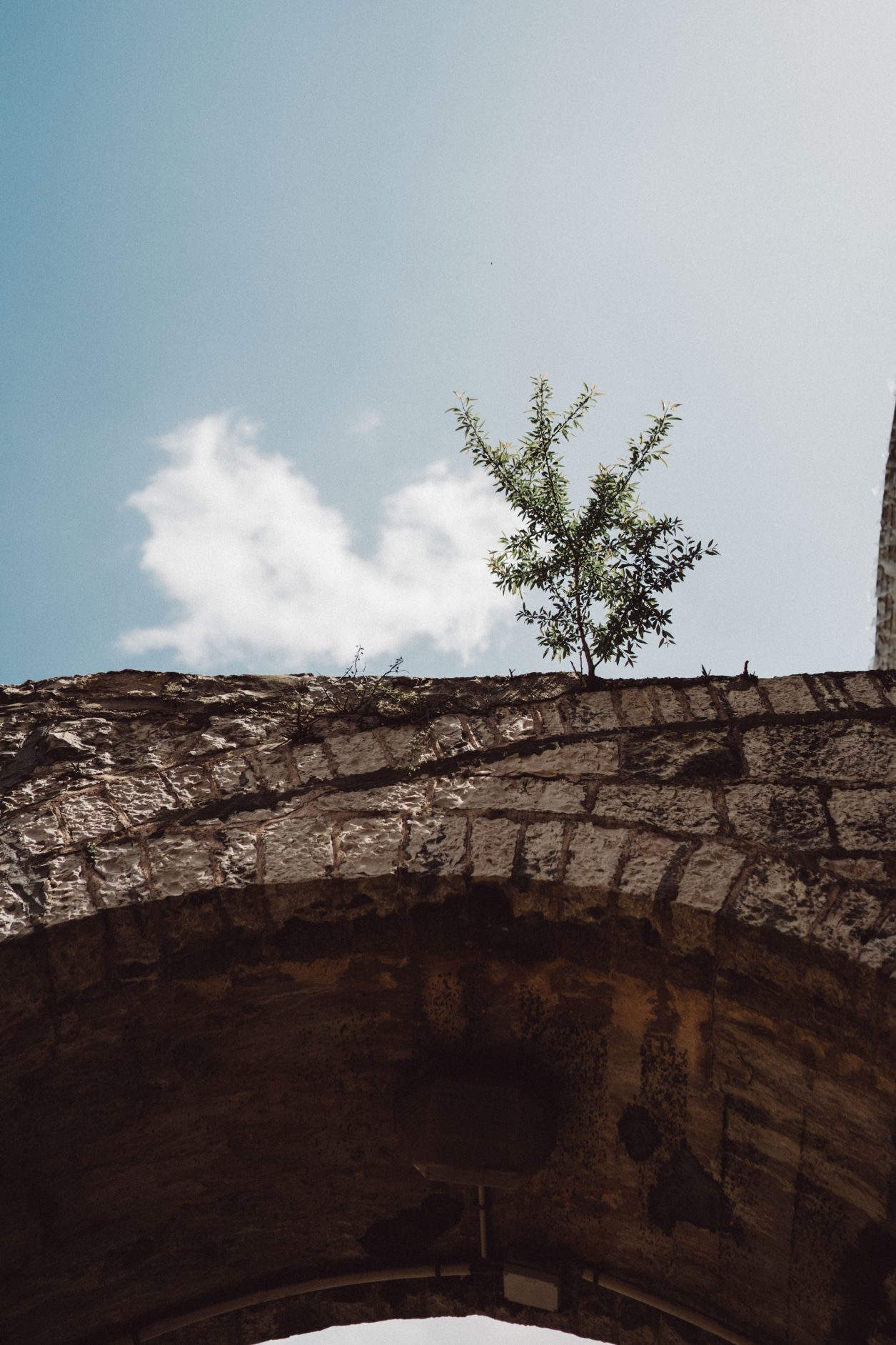
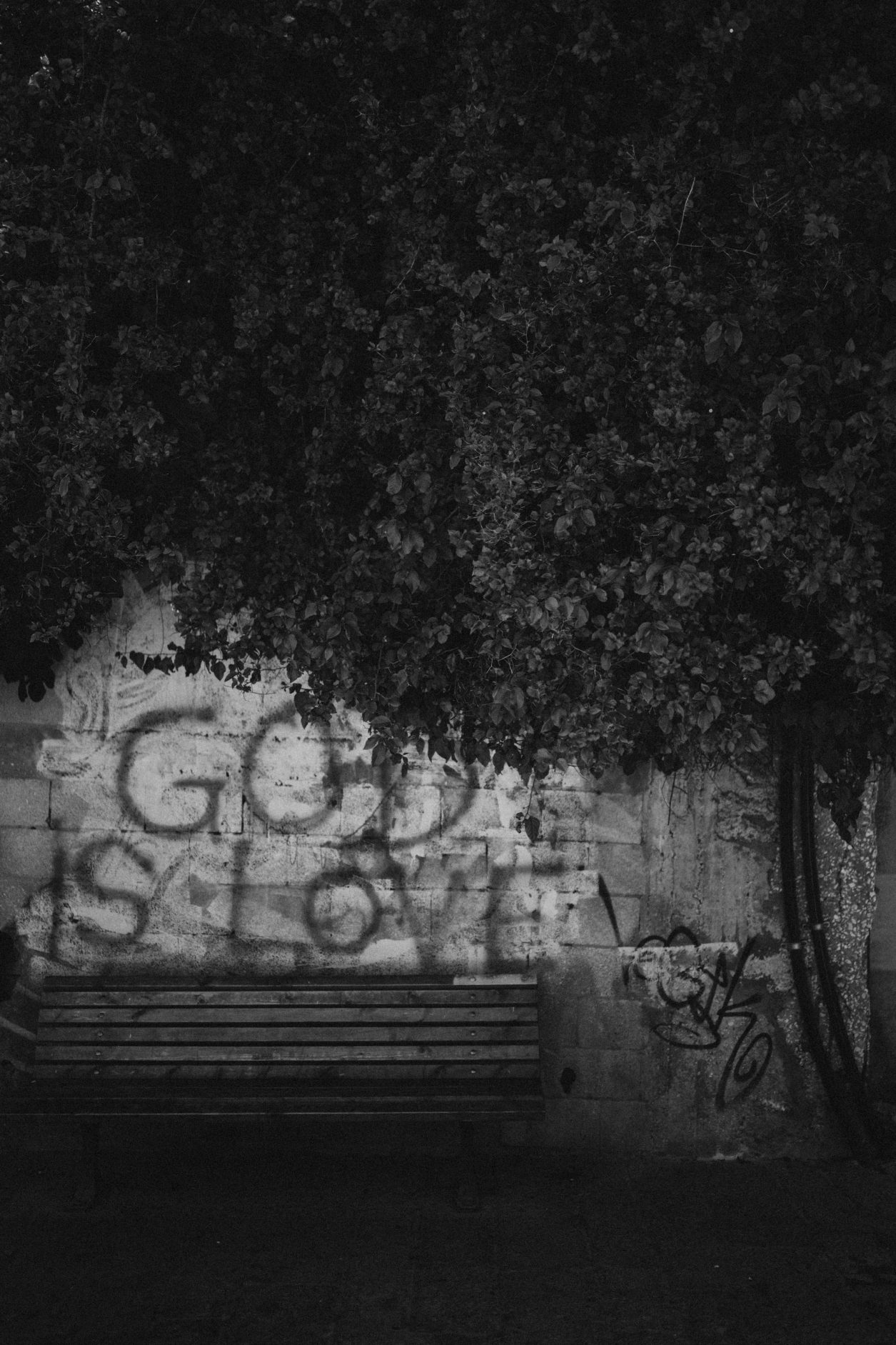
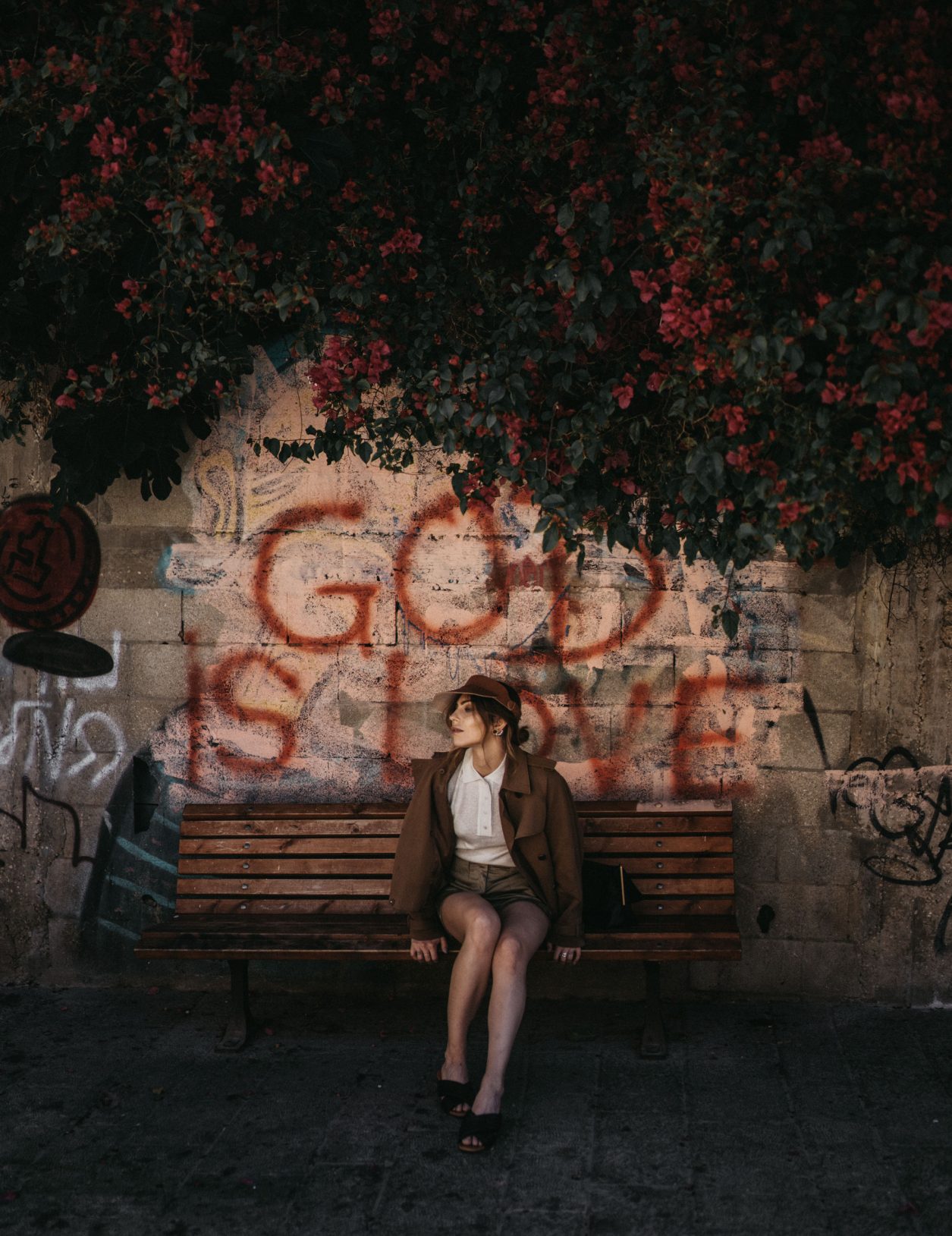
“I can’t really say what exactly it is that makes us live peacefully with each other. I think this city somehow connects us all”, says the private tour guide, who we hired to show us around the old town of Jerusalem. Crossing over from one street to the next, in this ancient maze, means walking from one extreme to the next. We meet muslims, jews, christians in all manifestations, sects of all descriptions. All crammed together on a space that measures no more than a few square kilometers.
Suddenly we understand, why the mood can boil over so quickly here. In this city, extremes live door to door. Human beings with diametrically opposed world views and convictions, who are nevertheless largely the same, and who pursue the same goals, albeit in opposite directions. The inhabitants of this city are divided and united in faith.
The invisible bond of solidarity, within individual groups but also between strangers and adherents of other faiths, is perceptible wherever we go. I try to bridge the gap between the images of hate and war that are imprinted in my mind with the life I am observing here. What I expected and what I am experiencing does not add up
It appears that the line between war and peace is nowhere nearly as clear as I thought it was.
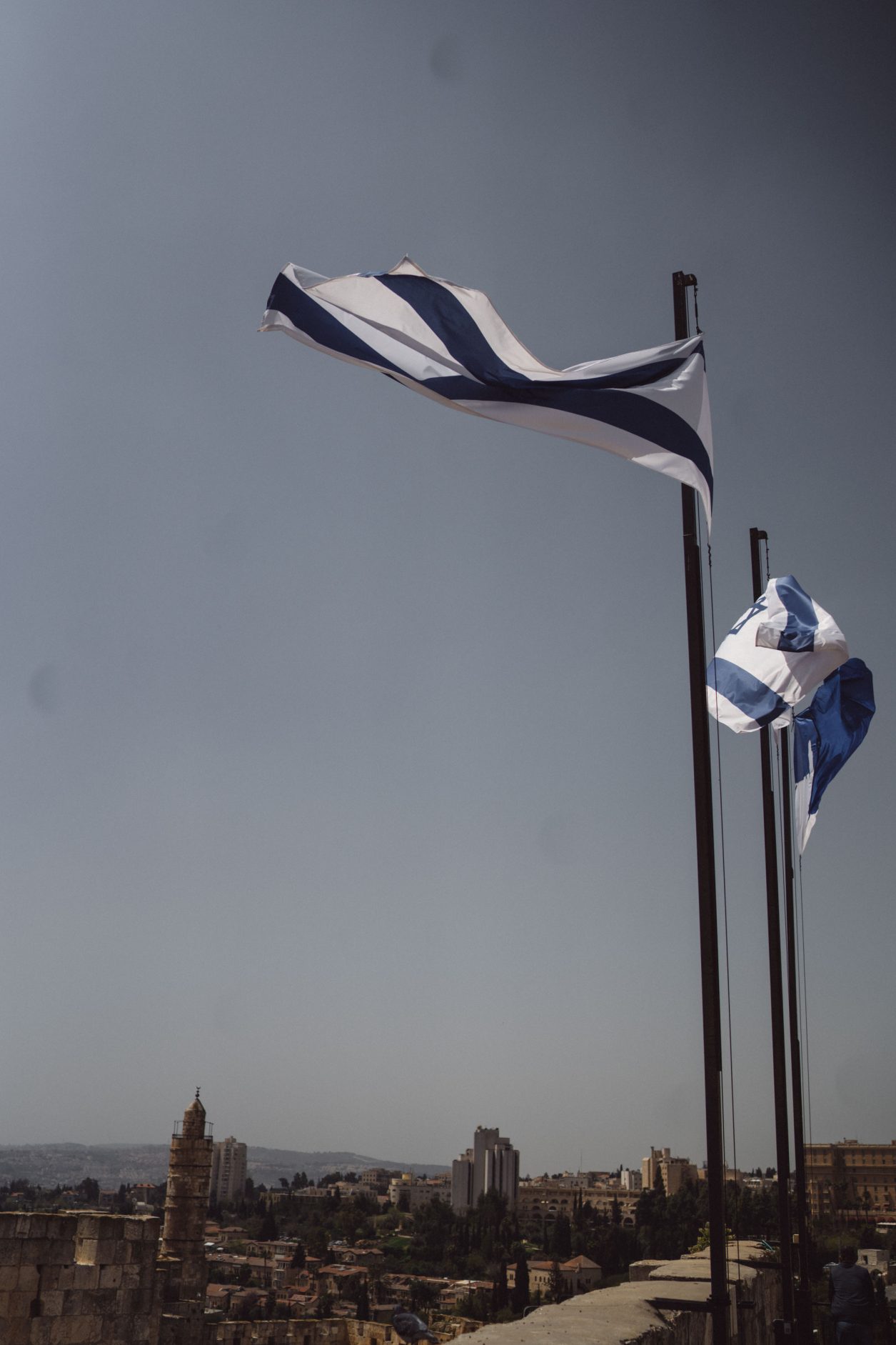
“You’re looking for the boulevard? I’m actually headed in that direction, just follow me!”, says the beautiful, young woman with the short, black hair and the brisk pace. She reminds me a bith of the protagonist of the Girl With the Dragon Tattoo. The young woman overheard me and my mother arguing about the way back to our hotel, and she interrupted us to help us out. For the next ten minutes, as we walked together, we enjoyed her company, and the insights she gave us into her daily life.
“When there’s a missile alarm, this hatch opens and you can take cover.” She points at what looks like a trapdoor in the pavement. “There are rows of benches down there, and there’s classical music playing.” She says it as if that was the most natural thing in the world. “Have you experienced many such missile attacks?” “Yep”, she says, shrugging. “And two terrorist attacks. The first when I was 6. We were out walking in the streets, and suddenly there was a big explosion. That was back in the day before mobile phones. Back then you didn’t have any means to find out straight away if your friends and family were safe.”
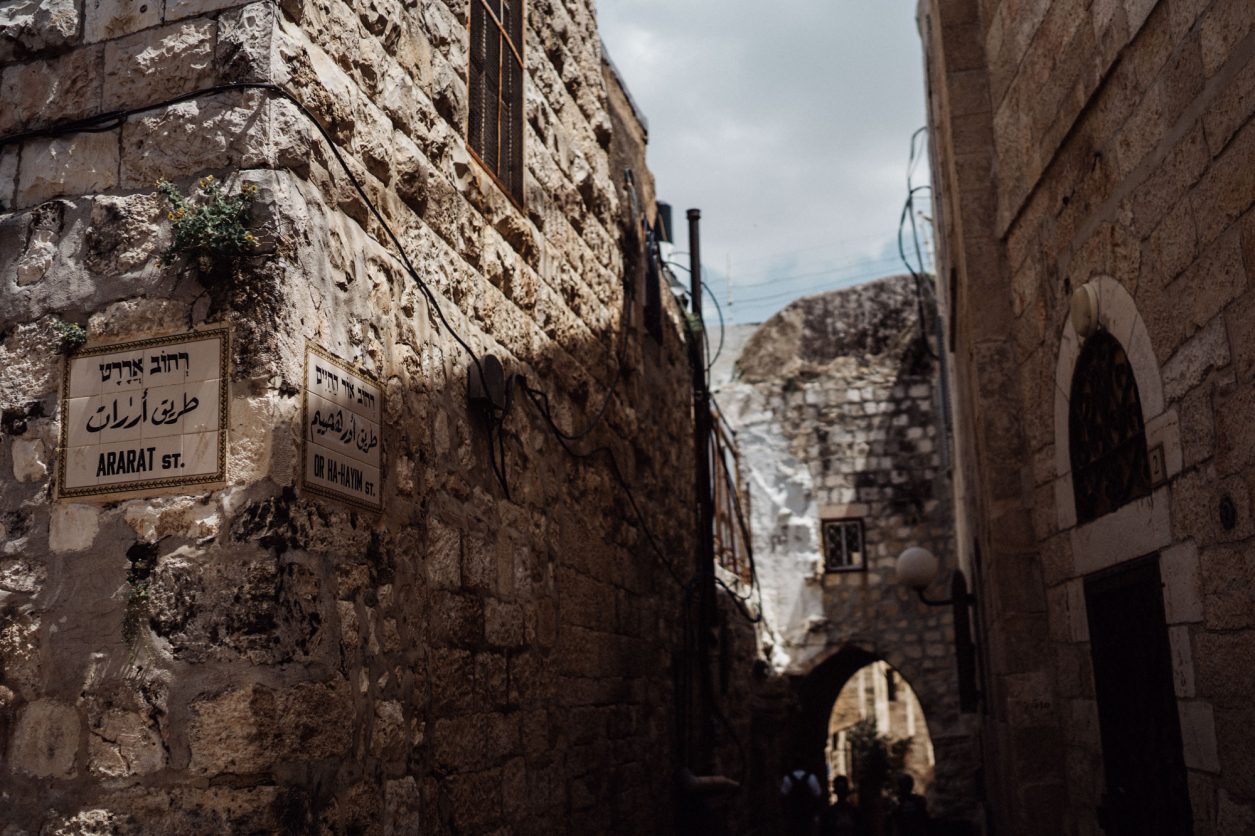
The realities of everyday life are clearly very different here. Life here doesn’t revolve mainly around the next vacation, the next paycheck, the next summer. People are more aware of the fragility of life here.
They life in the here and now.
It makes them more attentive, more tolerant and more joyful. It comes as no surprise, then, that consumer goods like cars, clothes and all that other stuff play a far less important role. Living here, you face the challenges of survival. What value can you place on shiny consumer stuff, when you live in an atmosphere of war?
And how much more central are values like humanity, courage and solidarity in such an environment?
I started wondering where this courage springs from, and how far it stretches when it’s needed. Where are my personal boundaries in that respect? Which are the moments in which I am particularly empathetic? When am I particularly courageous? Which are the moments, small and big, in which I live up to those values?
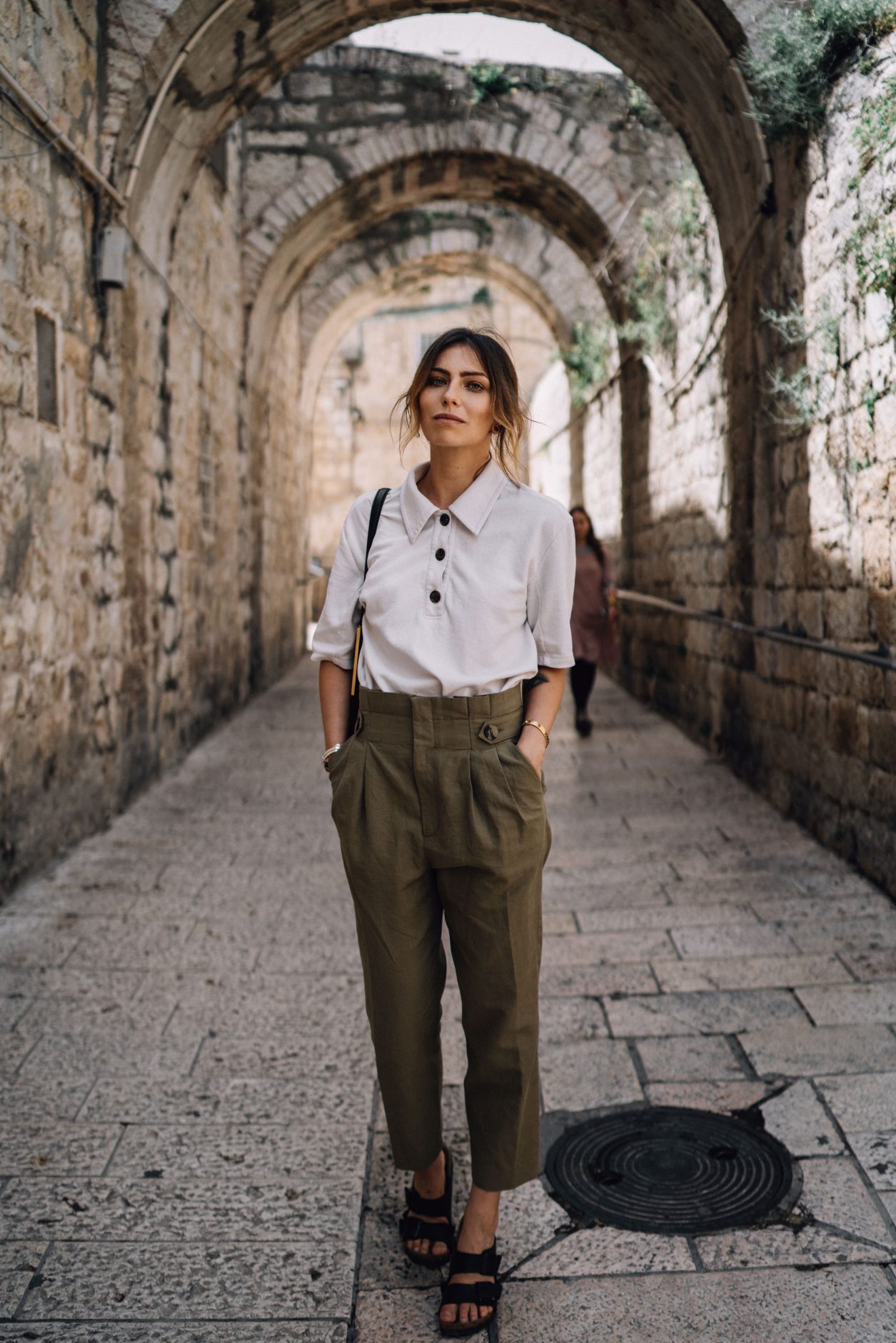
We like to help others, but we keep our distance.
We don’t look too closely, but we don’t turn away our heads, either.
We are happy to donate money, but so hesitant to gift warmth.
We demand solidarity, but in the end we’re all fighting for ourselves.
Thinking these thoughts, I felt a tinge of shame. Compared to people living in such fragile environments, our priorities seem insubstantial: we crave a hygge lifestyle, focus on digital policies and are mainly concerned with our own, personal growth. We preach human rights and an inclusive society, but we help conservative forces into power. We enjoy being linked to each other, we gift likes, and we hold up neighborly help as a natural virtue. But what if someone actually needs help?
We live in a peaceful country, untouched by war. We live in unheard-of abundance. But something is lacking. Humanity.




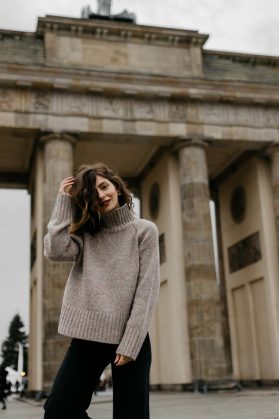
Masha, du inspirierst mich!
You are an amazing blogger I love the way you’re writing skills.